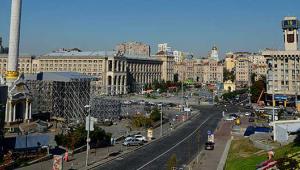The law will force the president, ministers and senior officials in the public sector, independent bodies, banks, judges, security forces, journalists and unions to declare their property, Reuters reported.
Since the uprisings in 2011, in which citizens took to the streets largely in protest against corruption in high places, the country’s economic progress has been lagging and corruption has remained a major problem.
Prime minister Youssef Chahed said: “The law is a revolution because it will allow the national group to scrutinize the unknown wealth that has been acquired illegally.”
The parliamentary speaker, Mohamed Naceur, also said that the law was another step in Tunisia’s efforts to fight corruption, improve transparency and “preserve public money”.
The penalties for illicit enrichment include fines and five years’ imprisonment.
The country’s anti-corruption committee has said that graft is still widespread and results in billions of dollars a year in losses.
It added that corruption had spread in all sectors, including security, public tenders and health.
Tunisia has failed to improve on Transparency International’s corruption perceptions index – which ranks countries by their perceived levels of public sector corruption according to experts and businesspeople – since 2012.







